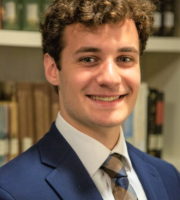
Proposed faculty diversity plan also does not include call for viewpoint diversity
An internal document from the University of Texas at Austin that outlines a new framework aimed at increasing and promoting faculty diversity has come under fire by some for ignoring the need for ideological and viewpoint diversity among professors.
The 16-page document highlights four “strategic objectives” and benchmarks to measure the success of the faculty diversity plan through the year 2024.
“We are dedicated to the principle that individuals of all races, ethnicities, peoples, nationalities, religious backgrounds, sexual orientations, gender identities and expressions, socioeconomic statuses, disabilities, and health histories, regardless of their marital, parental, age, veteran, or citizenship status, be respected, equitably included, and enjoy equitable access to opportunities,” reads the document’s introduction.
But a critique of the plan from the center-right National Association of Scholars denounced the proposal, calling it “profoundly prejudiced.”
“Notably absent from the plan’s definition is diversity of worldview or ideology—that is to say, anything outside of one’s physical, social, and legal ‘identities,’” the association wrote.
“… UT Austin leadership specifically seeks diversity of ‘identity’ over and against viewpoint diversity—a fundamentally progressive quest that cuts against what should be the university’s ideological neutrality.”
Part of the proposal would also require faculty job applicants to demonstrate a history of involvement in diversity.
“All applicants should address any past contributions, as well as their commitment to diversity, equity, and inclusion somewhere in their application materials,” reads part of the document’s first strategic objective under “hiring criterion.”
The National Association of Scholars argues that, if approved as proposed, such a requirement would amount to a political litmus test for hiring and promotion.
“We don’t yet know what the aforementioned ‘mechanisms for evaluating contributions to diversity’ will look like, or how much weight contributions will hold as ‘a criterion for faculty merit and a positive factor in promotion considerations,’ but their inclusion as an incentive for faculty promotions serves as another ideological litmus test,” the association argues.
“They would also fundamentally alter the nature of UT Austin instruction, encouraging conformity to leftist orthodoxy and discouraging dissent.”
Debates around the inclusion of ideological diversity have long been taking place on college campuses across the country.
In 2019, The College Fix covered the story of UC Davis math Professor Abigail Thompson, who was attacked for speaking out against requiring diversity statements of new hires, calling it inappropriate.
Zachary Michael Jack, a professor of English at North Central College, also warned in a column for The Chronicle of Higher Education that lacking diversity of ideas in college faculty can lead to too much commonality.
“Too often in choosing new colleagues, search-committee chairs fall in love with their own image, finding in deep pools of hundreds of well-qualified candidates someone that, for all intents and purposes, is a version of themselves. Something in the applicant reminds them favorably of themselves, and, if there is much of the egotist in them, they are smitten,” he wrote.
Jack also argued that increasing diversity should complicate decisions, not simplify them: “In practice, real diversity means that decisions that were once unanimous are now likely to be contentious.”
The College Fix reached out to Professor Jack, who was unavailable for comment.
Meanwhile, an official at the University of Texas said the document is far from complete and is still being reviewed by administration.
“The document shared online by the National Association of Scholars is not a policy but a draft of a plan still being discussed and finalized,” the university’s director of media relations J.B. Bird told The College Fix via email.
“The final faculty hiring plan, which is not complete, will continue to place the highest priority on a candidate’s record of teaching, research and academic service while giving candidates some way to include in their application service that contributes to diversity. The university will continue to seek faculty with a wide range of political, religious, philosophical, ideological, and academic viewpoints.”
Nonetheless, the association advocates for the proposal to be scrapped.
“The National Association of Scholars condemns this insidious, unjust ‘strategic plan’ and calls on UT Austin … to retract it immediately,” it stated.
MORE: The University of California’s diversity screening could ruin the quality of its faculty
IMAGE: El Nariz / Shutterstock
Like The College Fix on Facebook / Follow us on Twitter






Please join the conversation about our stories on Facebook, Twitter, Instagram, Reddit, MeWe, Rumble, Gab, Minds and Gettr.